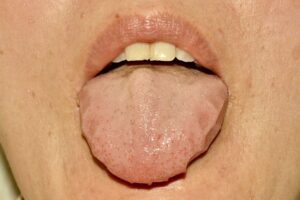What do our cravings tell us about our body?
Or rather, what is our body telling us through our cravings/appetite changes?
Correlations between our stomach/spleen (脾胃) function and mental ups and downs (bipolar disorders).
While I tend to dislike and avoid fatty foods, the other day I found myself suddenly craving greasy fried foods. I couldn’t settle and before I knew it, I was packing my grocery bag obsessively full of deep fried fish and other sorts. The following day, feeling somewhat lethargic and unsettled (a sense of restlessness and unease), I found myself doing the same thing. Why?
The third day, realizing that my body was trying to tell me something, I selected some grilled mackerel and avocado (“good fats”). Finally, my cravings stopped, I could sleep well and felt at ease.
This is a simplified example, but it got me thinking more about the relationship between our mental state and stomach/spleen function.
From a Western perspective we would most probably interpret this as a minor vitamin or nutrient imbalance and would not regard this as a “disorder” that needs to be addressed. In other words, the scale is small.
But imagine this on much bigger scale of extreme mood swings that range from manic states to depressive states. Is this the same mechanism, just on a completely different scale? If so, what causes the dramatic shifts? What other elements are at play?
From a Chinese medicine perspective, physiological changes, including our cravings (appetite/habits) and mental oscillations, point to an imbalance of Ying-qi and Yang-qi, which if left unaddressed will lead to pathological occurrences.
[My Understandings from Today’s Conversation with Shimono-sensei]
・The stomach (dominantly a Yang aspect) and the spleen (dominantly the Ying aspect) form an opposing and mutually supporting equilibrium. The stomach/spleen further correlate to the Earth element, which acts as a grounding force (土台), and cognition (思).
・While the stomach has a descending function, pushing our digested foods through the gastrointestinal tract, when weakened this function becomes stagnated, resulting in congestion and the production of pathological internal heat (湿の熱化). (I like to think of it like a car engine. If you put poor quality fuel into the engine, the residual sediment will clog up the engine, causing stagnation. Over time the engine will tend overheat due to the built-up sediment and poor functioning of the engine).
・Conversely, while the spleen has an ascending function, that helps absorb nutrients and distribute them through our body (昇精), it also acts as a “lid” that suppresses the Stomach Yang-Qi from ascending upwards. Weakened function results in loss of energy, due to the spleen’s inability to absorb (contributing to depressive states) and the inability to suppress the rising tendency of the Stomach Yang-Qi.
・Imbalances of stomach/spleen results in the stagnation of “substances” and weakened function (depressive state). The internal heat produced in the stomach, as a by-product of stagnated substances, can explode upwards(気逆) due to the spleen’s inability to suppress it (manic state).
[Questions]
If our mental or emotional up/downs are correlated with Ying/Yang imbalances and stagnation/weakness of the stomach/spleen, then what causes the sudden and extreme shifts seen with bipolar and other mood disorders?
What other imbalances, mechanisms, or contributing factors exist that could result in a similar outcome?
______________________________________
TONGUE DIAGNOSIS 舌診

【所見】
舌質色: 淡白舌
舌質形: やや胖大、歯痕あり
苔色:白苔
苔状:薄苔・均一があり
その他の所見:
舌先に薄い紅点があり。
_____
【分析】
紅の色が薄く(淡白)→寒の症候
胖大舌:津液の停滞・痰飲があり
歯痕: 人体の動きが低下・不足している
薄先紅(ぶつぶつ): 虚熱?
・寒邪のため陽気を損なわせられ、気きょ状態となっている。
・気虚のため、体内の津液が停留し、痰飲を生じている。
・体内の動きが低下している。
・舌先には、薄い紅のぶつぶつがありますが、痰湿の熱化まで至っていない。







